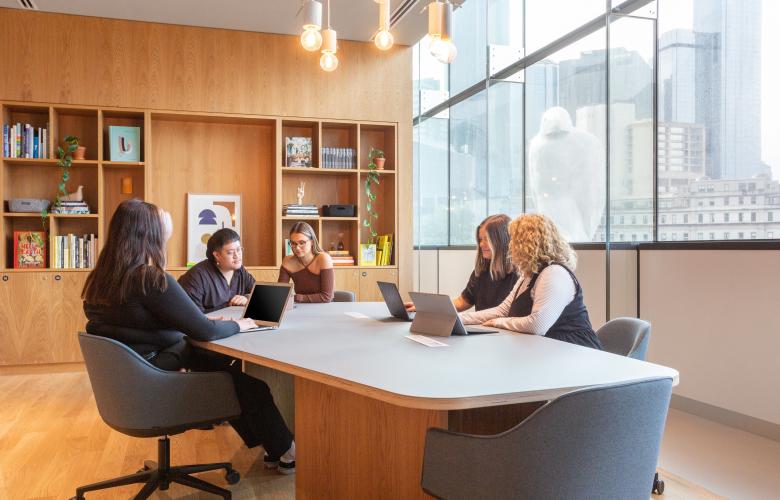The legislative agenda driving hybrid
Contact
The legislative agenda driving hybrid
Legislative changes making their way through numerous European courts to the UK could bring significant opportunities for landlords and franchise partners. With UK workers now granted the legal right to request flexible working, we look at the transformative effect this may have on the flexspace sector.
Before COVID-19 sent the world into lockdown, only around 5% of employees in the EU regularly worked from home. In some countries, this figure has increased fourfold since the pandemic, according to the World Economic Forum. Now a new legislative agenda has spread through the European courts to the UK in support of a flexible new working landscape.
This could bring seismic changes to how companies negotiate their office spaces, creating a demand for flexibility, connectivity, and a 15-minute commute that landlords and franchisees will be expected to supply.
UK joins EU neighbours in gaining the right to flexible working
In late 2022, the UK government announced new legislation granting millions of British workers the right to request flexible working on at least one day out of the working week. If an employer is unable to accommodate a request to work flexibly, they will be legally required to discuss alternative options with employees rather than reject the request outright.
As well as empowering workers to have more of a say over where, when and how they work, this scheme is set to help businesses enjoy greater productivity and employee retention.
Minister for Small Business Kevin Hollinrake voiced his support for the scheme, saying:
‘Giving staff more say over their working pattern makes for happier employees and more productive businesses. Put simply, it’s a no-brainer. Greater flexibility over where, when, and how people work is an integral part of our plan to make the UK the best place in the world to work’.
A legal pathway to flexibility
The UK is by no means the first country to successfully lobby for more flexible working. The legal path to flexibility began in Portugal, where new remote working laws were passed that also enabled employees to claim expenses incurred during home working, with a ban on employers contacting their staff outside working hours.
Several other countries are expected to follow suit, with Germany and The Netherlands introducing similar laws, while Ireland introduced a ‘Right to Request Remote Work Bill’ that was fast-tracked in November 2022. This aims to ensure that remote working is a permanent feature in the Irish workplace to the benefit of the country’s economy, society and ecology.
The demand for flexible working seems to be a global phenomenon, with demand rapidly spreading across Asia. Mercer’s 2022 Global Talent Trends Study found that ‘One in three employees in Asia are willing to forgo pay increases to be able to work flexibly, closely followed by well-being benefits’.
Meanwhile, around 70% of workers across Asia consider a lack of remote or hybrid working as ‘a deal breaker when considering whether to join or stay with an organisation’.
New demand brings new opportunities
As more and more countries introduce legislation to facilitate flexible working, it’s clear that business property stakeholders must adjust their strategies accordingly to keep up with the surge in demand both within the UK and across the globe.
In spearheading the hybrid revolution, IWG has worked to ensure that flexible working continues to work in the favour of landlords and franchisees as well as enterprise clients and their employees. Working with IWG, stakeholders may benefit from the increased demand for flexible workspace, attracting more new clients and improving their value proposition for existing clients.
Legislation has finally caught up with the reality that hybrid is here to stay. And companies are already drastically rethinking their office footprint and paying close attention to where and when they need working space. IWG aims to support stakeholders in locating and developing the right property in the right locations. This can help them to increase their added value for enterprise clients, providing them with the local, flexible spaces they need to offer employees an optimal hybrid working routine.
As demand for hybrid grows, flexible workspaces are primed to help companies enjoy the financial and non-tangible benefits that it brings, and share them with their employees. For landlords and franchisees, this may mean supplementing their predominantly urban portfolios with expansion into locations outside bustling city centres. For instance, 90% of new IWG locations are in the suburbs, acting as satellite offices to cater to employees who are now empowered to work closer to home.
By acting now, business property stakeholders have the opportunity to respond to this surge in demand and position themselves as the solution that business leaders need.
For strategic advice on supplying to the demand for flexible workspaces, find out more about flexspace development with IWG. With the flexspace sector set to grow 600% by 2030, this is a once-in-a-generation opportunity for landlords and franchisees.
Related Reading:
How companies react when bull becomes bear
Planning to make your space effective for a demand-driven portfolio
What a connected office might look like in the future
What do tenants want from the workspace of today?
Why Hybrid Clients Are Thinking Outside The Box
Current Work Trends : What Franchise Operators and Landlords Need To Know
Flexspace Benefits any Business... and any Property | Commo.
Current Work Trends : What Franchise Operators and Landlords Need To Know | Commo.
The Role of Franchise Operators and Landlords in the Future of Flexspace
Suburban rejuvenation. New places for workplaces. New opportunities for landlords.





